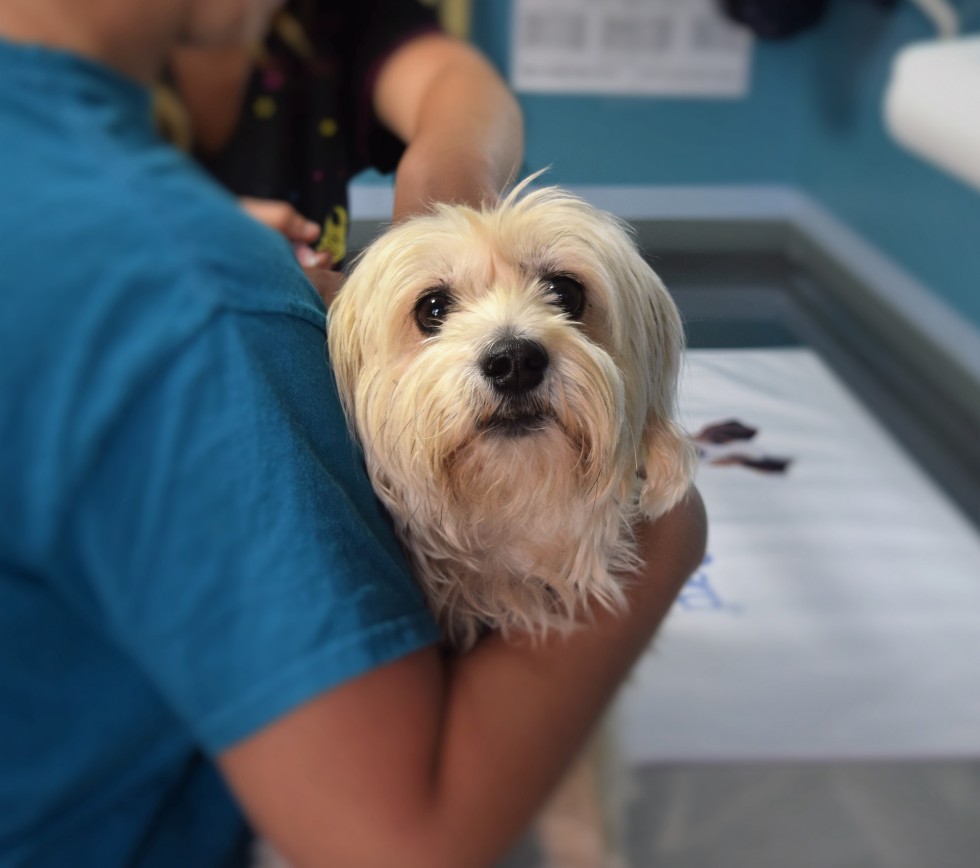When you have a pet in your home it doesn’t only give you great joy and pleasure, but also makes you responsible for its health. Apart from other things, it suggests taking your pet to a vet on a regular basis. While many people are well aware of the importance of routine medical examinations for their fluffy companions, others seem to be reluctant to take their cats or dogs to the vet clinic. They explain it by high fees, the necessity to ask for time off work, or by the inconvenience of having to deliver their pets to the vet clinic and back. However, regular visits to a vet are essential if you want your animal friend to stay active and healthy for many years.
Your pets are real ‘specialists’ in hiding their health issues from you, and that makes regular visits to a veterinary clinic even more indispensable. The symptoms of an illness that your dog or cat might have are sometimes imperceptible to an untrained eye. Only a professional animal doctor can spot them and start the required treatment immediately in order to avoid major problems. Prevention is also important when looking after pets. So, what exactly are the benefits of regularly taking your pet to a vet?
1. Vaccination at a vet clinic
It is usually recommended to have a pet vaccinated every year. That way you can prevent a number of diseases such as kennel cough for dogs and cat flu, feline chlamydophila, or feline enteritis for cats. Vaccination can also ensure cats or dogs don’t get rabies or parvovirus. It is true that some vaccines may have negative effects like malignant skin tumors in cats. So, nowadays vets are more selective in administering vaccines. Home pets that stay indoors most of the time and seldom get in contact with other animals don’t need to be vaccinated as frequently as those who live outdoors.
2. Analysis of behavioral changes
When you bring your pet to a vet clinic, you should tell the doctor about any changes in the behavior of your animal friend no matter how small or insignificant they may seem at first sight. These changes may include abnormal urination, drinking more water than usual, or showing no interest in a daily walk. All those deviations may signal a developing health issue, for example, arthritis. A professional vet will immediately come up with the right diagnosis when they hear your observations and recommend a qualified expert in a particular area.
3. Prevention of fleas, worms, and ticks
Regular visits to a vet clinic can also protect your pet from fleas, ticks, or worms. Ticks are transmitters of serious diseases including cat illnesses. Fleas can live in your house or apartment throughout the year. A doctor can tell you what precisely you need to do to counteract those obnoxious parasites pestering your dog or cat.

4. Control over the weight of your pet
Whenever you come to a vet clinic for examination, you have your pet weighed. If it has an abnormally large weight, your vet can prescribe a diet for it and suggest some activity-stimulating actions. On the other hand, if the weight of your dog or cat has decreased in comparison with your previous visit, it could signify a health issue.
5. Neutering or spaying
You can decide to neuter or spay your pet if you are not going to breed from them. By having your cat or dog undergo this operation, serious health problems can be avoided such as certain cancer types. Your doctor can give you advice concerning the most appropriate time for spaying or neutering your animal friend.
6. Dental examination
When you bring your pet to a vet clinic, you can be sure your doctor will examine its teeth. That is particularly important for cats who very seldom show that they are experiencing pain. Dental problems are common for felines, and the older they get, the worse their teeth become. Even if the vet has not spotted anything wrong, they can thoroughly clean your pet’s teeth to prevent any future issues.
7. Treatment of senior animals
Regular check-ups are essential for older cats and dogs as every month at the later stages of their lives is equal to 7 months in ours. They fall ill far more often and it is crucial for a vet to identify any health problems that senior animals have as soon as possible. In the course of these examinations, the vet may check the animal’s blood pressure or order a urine or blood test to have a more accurate picture.
Apart from the benefits described above, regular check-ups help your pet get used to the vet. When you only bring your cat or dog to a vet clinic when they are suffering, they will associate your vet exclusively with unpleasant experiences. By contrast, when you visit a vet frequently, your animal friend will have a positive memory and will not be nervous or stressed every time it sees someone in the medical attire.

So, taking your pet for regular veterinary check-ups at a vet clinic is a good idea as you get a number of advantages such as control over your pet’s weight and body condition, prevention of various parasites, proper vaccination, and others.





